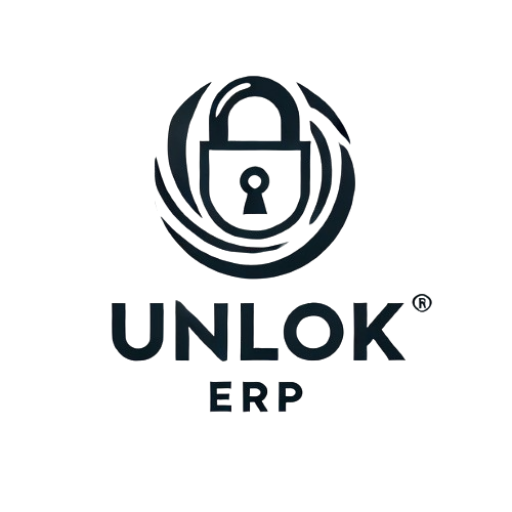
In today’s fast-paced and competitive business environment, efficiency, streamlined operations, and accurate data management are critical for success. One of the most effective ways to achieve this is through the implementation of Enterprise Resource Planning (ERP) software. ERP software integrates various business functions, such as accounting, sales, inventory, human resources, and customer service, into a unified system. This helps businesses automate processes, improve accuracy, and provide actionable insights to make more informed decisions. Let’s explore how ERP software can specifically help your business.
1. Streamlined Operations
One of the primary benefits of ERP software is its ability to streamline business operations. By integrating multiple business functions, ERP eliminates the need for disconnected systems, reducing duplication of efforts and inefficiencies. With real-time data from different departments, employees can work together more effectively, avoid errors, and speed up decision-making.
For example, sales and inventory teams can access up-to-date information about product availability, while accounting can track orders and financial transactions in real-time. This seamless coordination between departments ensures smoother day-to-day operations.
2. Improved Data Accuracy and Reporting
ERP systems provide a centralized data repository, which means all data is stored in one place. This helps to improve the accuracy of your business information and ensures that everyone has access to the same up-to-date data. Eliminating the use of spreadsheets or multiple databases reduces human error, leading to more reliable and consistent reporting.
With automated reports and dashboards, decision-makers can track key performance indicators (KPIs) such as revenue, costs, inventory levels, and more. ERP systems also support advanced reporting features, allowing businesses to generate customized reports quickly and efficiently.
3. Better Decision Making with Real-Time Insights
Having access to real-time data is essential for making informed decisions. ERP software gives business leaders the tools they need to analyze data from various functions and gain valuable insights into business performance. With dashboards and customizable reports, you can track everything from financial health to customer satisfaction metrics, helping you make smarter decisions faster.
For example, the finance team can quickly see the company’s cash flow, while the sales team can identify trends and customer purchasing patterns. This data-driven approach ensures your decisions are based on facts rather than guesswork, enabling your business to stay ahead of the competition.
4. Enhanced Customer Service
ERP software can greatly improve your customer service by providing your team with instant access to customer data. With the integration of CRM (Customer Relationship Management) features within ERP, your sales and support teams can view customer histories, track open orders, monitor customer preferences, and handle inquiries efficiently.
For example, if a customer calls about the status of an order, your service representative can quickly retrieve relevant information such as order status, shipping updates, or invoice details. This rapid response not only improves customer satisfaction but also helps build long-term relationships.
5. Increased Efficiency Through Automation
Manual tasks such as data entry, order processing, and inventory management can be time-consuming and prone to errors. ERP software automates many of these tasks, freeing up your team to focus on more strategic activities. For instance, ERP systems can automatically update inventory levels when new stock is received, generate invoices, and send alerts for low stock levels, reducing the manual work involved.
Automation not only increases efficiency but also reduces the risk of mistakes, leading to higher productivity and fewer costly errors. This can ultimately result in significant time and cost savings for your business.
6. Scalability for Business Growth
As your business grows, your operational complexity also increases. An ERP system is highly scalable, meaning it can adapt to meet the needs of your growing business. Whether you’re expanding into new markets, launching new products, or adding new locations, ERP systems can be configured to support your changing business needs.
For example, when you expand into international markets, ERP systems can support multi-currency, multi-language, and multi-taxation requirements. This scalability ensures your ERP software grows with your business, providing a solid foundation for future expansion.
7. Compliance and Risk Management
In today’s business environment, companies are increasingly facing regulatory challenges. Whether it’s financial regulations, tax laws, or industry-specific standards, compliance can be complex and time-consuming to manage manually. ERP software helps mitigate this challenge by automating compliance tracking, ensuring that your business adheres to the necessary regulations.
ERP systems also help with risk management by providing tools to monitor internal controls and flag potential issues, such as financial discrepancies or supply chain disruptions. With the right ERP system in place, your business can stay compliant and minimize risks, ensuring a secure and compliant operation.
8. Cost Reduction
ERP systems can help businesses reduce costs in several areas. By automating processes and improving operational efficiency, businesses can save on labor costs and reduce operational waste. ERP systems also help optimize inventory management, which reduces excess stock and storage costs.
Additionally, better data accuracy means fewer costly mistakes, and improved decision-making leads to more efficient resource allocation. All of these factors contribute to long-term cost savings for your business, improving your bottom line.
How Unlok ERP Can Help Your Business with ERP Software
At Unlok ERP, we specialize in ERP consultation and implementation services. We understand that choosing the right ERP system can be a daunting task, and we’re here to help guide you through the entire process. Our experienced team of consultants will:
- Help you assess your business needs and identify the right ERP system
- Provide guidance on customization and integration to ensure the ERP software fits seamlessly into your existing workflows
- Manage the full implementation process to ensure a smooth transition
- Offer training and support to ensure your team can fully leverage the capabilities of your new system
Whether you’re looking to improve operational efficiency, enhance data accuracy, or streamline processes, Unlok ERP is committed to helping your business succeed with the right ERP solution.
Conclusion
In today’s competitive business landscape, ERP software is a powerful tool that can transform your operations. From streamlining workflows and improving data accuracy to enhancing decision-making and boosting customer satisfaction, ERP software plays a key role in driving business growth and success. At Unlok ERP, we help businesses choose and implement the right ERP system to meet their specific needs and goals. Reach out to us today to learn how we can support your business in harnessing the full potential of ERP software.










